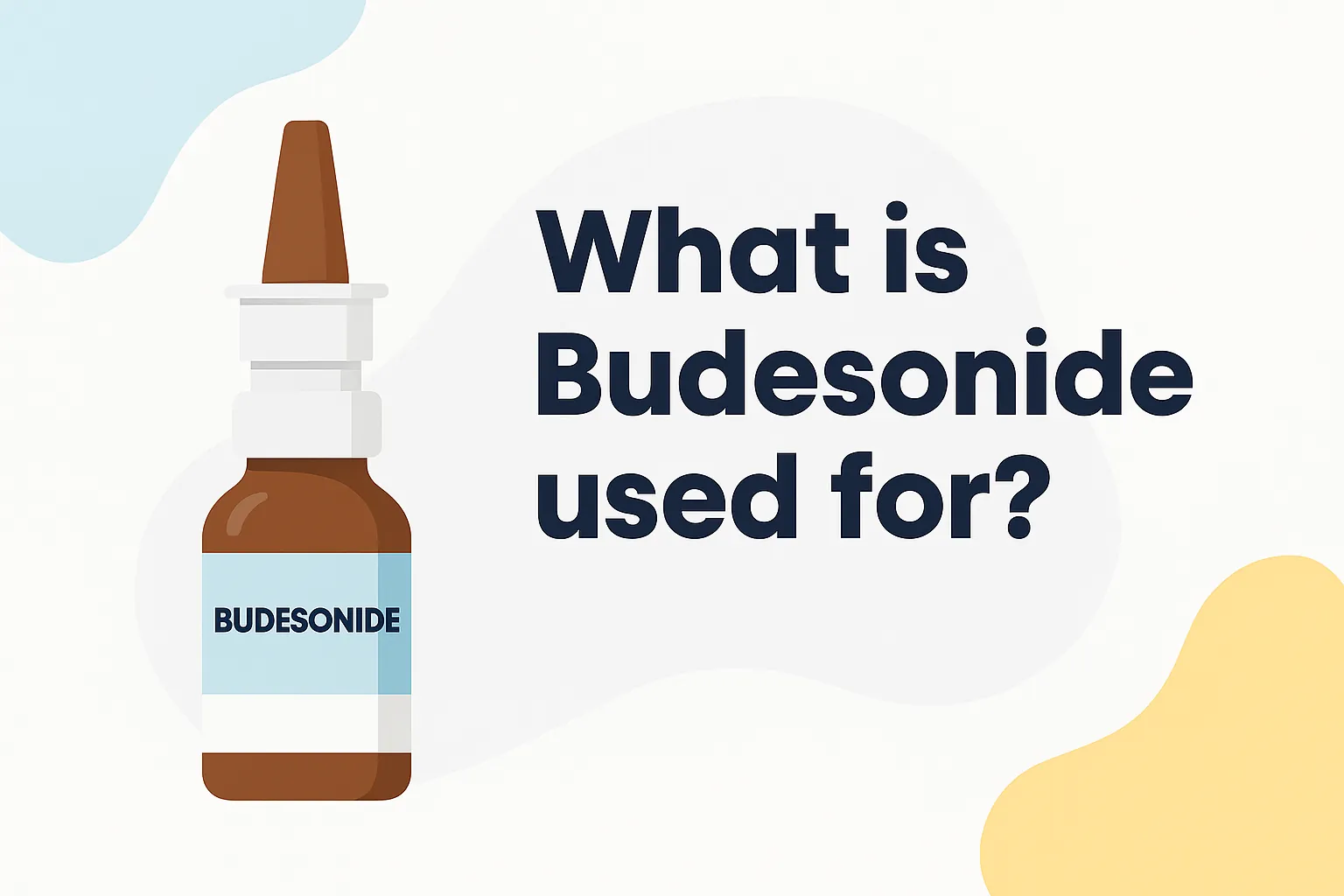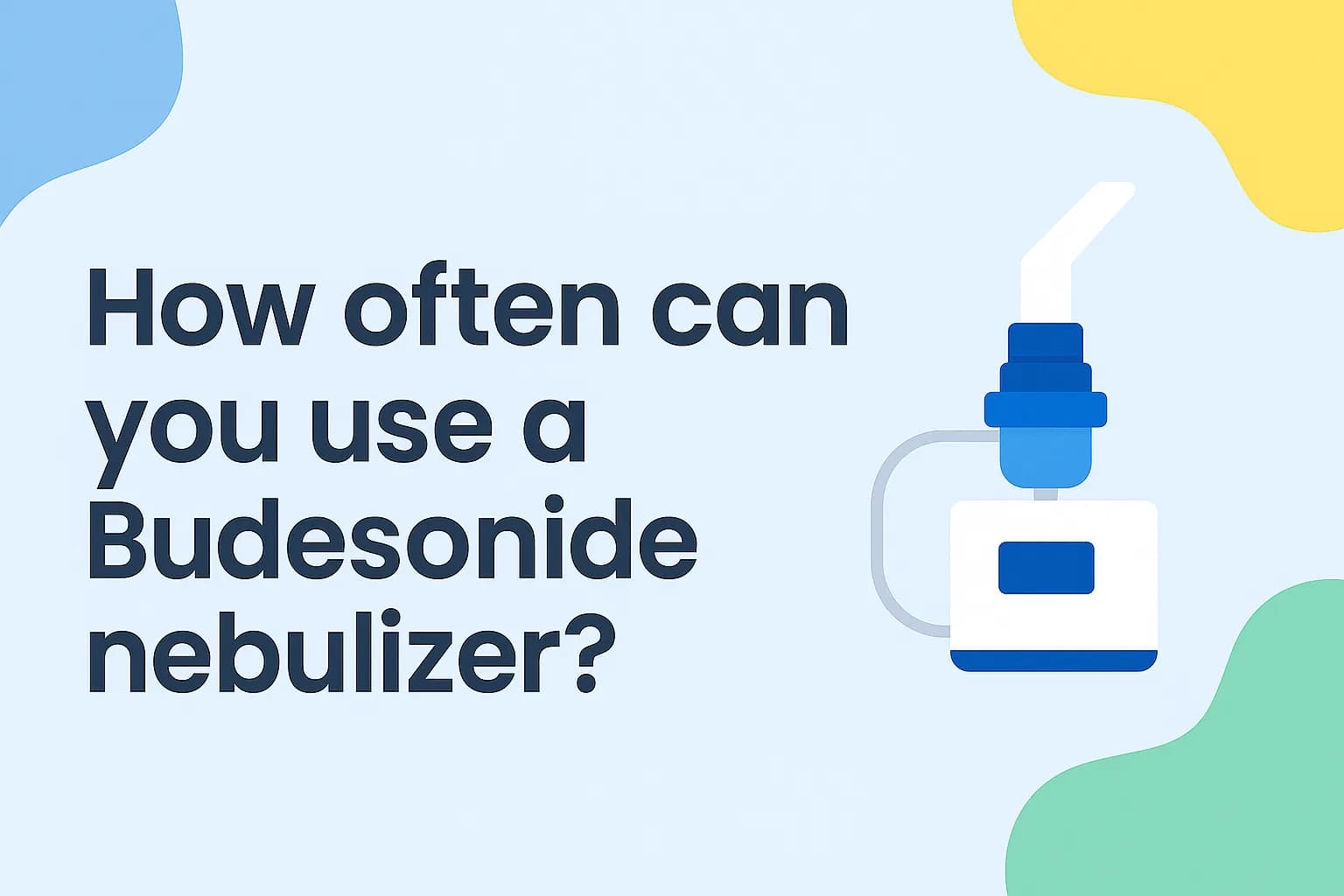What is Budesonide used for?

Budesonide is the generic version of several brand-name medications in different dosage forms. It is a steroid that is used to treat inflammatory conditions such as:
Asthma and chronic obstructive pulmonary disease (COPD)
Budesonide inhalation solution and inhalers are used to prevent trouble breathing, wheezing, cough, and chest tightness due to asthma and COPD. It works by reducing swelling and irritation in your airways, making it easier for you to breathe.
Inflammatory bowel diseases
Budesonide capsules and tablets are used to treat disorders that affect your GI tract, colon (large intestine), and rectum, including Crohn’s disease, ulcerative colitis, and microscopic colitis. They are available in delayed-release and extended-release formulations.
Primary immunoglobulin A nephropathy
This kidney disease occurs when too much immunoglobulin A builds up in the kidneys, causing inflammation. Tarpeyo delayed-release capsules are approved to treat this condition by reducing inflammation and decreasing immunoglobulin A production.
Nasal polyps
Budesonide nasal spray can shrink painless, soft growths inside the nose that block airflow.
Hay fever and allergies
Budesonide nasal spray treats itchy or runny nose, sneezing, and other symptoms of allergic rhinitis (hay fever) by preventing inflammation associated with allergic reactions.
Side effects of budesonide
Common side effects by dosage form
- Inhalers/nebulizer solution
- Common cold symptoms (stuffy/runny nose, sore throat, cough)
- Viral upper respiratory tract infection
- Nausea
- Stomach virus
- Nasal spray
- Nosebleeds
- Sore throat
- Oral tablets and capsules
- Headache
- Respiratory infection
- Nausea
- Back pain
- Joint pain
- Dizziness
- Upset stomach or indigestion
- Gas
- Stomach pain
- Vomiting
- Tiredness
- Pain
Other less serious side effects
- Inhalers/nebulizer solution
- Middle ear infection
- Oral thrush
- Nasal spray
- Cough
- Irritation in your nose
- Oral tablets and capsules
- Acne
- Easy bruising
- Swelling of the face, lower legs, ankles, and feet
- Abnormal hair growth
- Stretch marks on the skin
- Fast heartbeat
- Increased appetite
- Weight gain
- Nervousness
- Trouble sleeping
Rare but serious side effects
- Severe, life‑threatening allergic reaction.Seek immediate medical attention if you have hives, swelling of your face, tongue, or throat, or shortness of breath.
- Change in stress hormones.Long‑term or high‑dose use can mimic excess cortisol, causing weight gain, facial/back swelling, and limb fat loss. Sudden discontinuation may lead to low‑cortisol symptoms (nausea, loss of appetite, weakness, diarrhea).
- Vision changes.Long‑term use can raise eye pressure, worsen glaucoma, and cause cataracts. Report blurry vision or eye discomfort immediately.
- Increased risk of infections.Budesonide can weaken the immune system, increasing risk of fungal, bacterial, or viral infections. Avoid sick contacts and notify your provider if you develop fever, chills, cough, or breathing difficulty.
- Worsening of other medical conditions.Corticosteroids may worsen diabetes, high blood pressure, osteoporosis, glaucoma, and stomach ulcers. Your provider may need to monitor you closely.
- Delayed growth in children.Use the lowest effective dose for the shortest duration. Discuss growth concerns with the healthcare provider before starting.
Drug interactions
Using budesonide with other prescription drugs, over‑the‑counter medications, vitamins, and supplements may alter their effects or increase side effects. Inform your provider about all you take, including:
- Antacids
- HIV/hepatitis protease inhibitors
- Erythromycin, clarithromycin
- Ketoconazole, itraconazole
- Cyclosporine
- Cimetidine
- Grapefruit juice
This list may not include all possible interactions.
Warnings and precautions
Do not take budesonide if you are allergic to it or any inactive ingredients. Inhalation powder contains milk proteins—avoid if allergic. Inhalers should not be used during an asthma attack; keep a short‑acting inhaler available.
Tell your provider if you have:
- Diabetes
- Active infection or tuberculosis exposure
- History of chicken pox or measles exposure
- Stomach ulcers
- Liver disease
- Glaucoma or cataracts
- Osteoporosis
- High blood pressure
- Adrenal insufficiency
- Planned surgery
- Pregnancy or planning pregnancy
- Breastfeeding or planning to breastfeed
Will you gain weight on budesonide?
Budesonide belongs to corticosteroids, which carry a risk of weight gain. Although not always reported, some brands list weight gain as a possible side effect.
Related Medications
- Entocort EC (budesonide)
- Entocort Enema (budesonide)
- Pulmicort Flexhaler (budesonide)
- Rhinocort AQ Nasal Spray (budesonide)
- Pulmicort Respules (budesonide)
- Uceris (budesonide)
- Tarpeyo (budesonide)
Sources
- Budesonide inhaled (Rx). Medscape. Accessed July 16, 2024.
- Budesonide rectal (Rx). Medscape. Accessed July 16, 2024.
- Budesonide intranasal (Rx, OTC). Medscape. Accessed July 16, 2024.
- Budesonide (Rx). Medscape. Accessed July 16, 2024.





